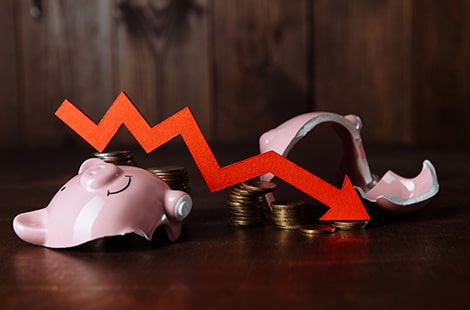The infiltration of counterfeit goods in the fast-moving consumer goods (FMCG) sector has escalated into a global issue. Recent reports indicate that counterfeit FMCG products account for nearly 10% of the global market, costing legitimate businesses billions of dollars annually. These fake goods, often sold at lower prices, deceive consumers and lead to serious health risks, from contaminated food to unsafe personal care items. For brands, the impact is devastating, with losses in revenue, damaged reputations, and diminished consumer trust. As counterfeit products continue to flood the market, the urgency to protect both consumers and brands has never been greater.
Economic impact of Counterfeit Products on Brands
Counterfeit products have become a significant threat to legitimate brands, causing severe financial losses. These fake goods, often sold at a fraction of the price of genuine products, undercut the market and erode a brand’s revenue. The financial impact extends beyond just lost sales; it also includes the costs associated with combating counterfeiting, such as legal fees and anti-counterfeit measures.
AI and cryptography are increasingly used to protect brands from these threats. AI helps in identifying and tracking counterfeit products across various platforms, while cryptography secures the authenticity of products through unique digital signatures. These technologies help brands maintain their reputation and consumer trust, which are crucial for long-term success.
The economic impact of counterfeiting is vast, affecting a brand’s market share and diminishing its value over time. As counterfeit products continue to infiltrate the market, brands must invest in advanced technologies to protect their assets and ensure their longevity in the competitive global market.
How do Counterfeit products in FMCG sector endanger consumer health
The rise of counterfeit products in the FMCG sector poses significant health risks to consumers. With the shift towards online shopping, many people are unknowingly purchasing fake goods, including food and personal care items. These counterfeit products often contain low-quality or dangerous ingredients, leading to serious health issues. For example, food fraud, where substandard or hazardous materials are added to products, has become a major concern. Studies have shown that a large percentage of everyday items like olive oil or meat can be counterfeit, putting consumers at risk of allergies, poisoning, or worse.
AI and cryptography are now being used to combat this issue. These technologies help track and verify the authenticity of products, ensuring that only safe, genuine items reach consumers. The growing problem of counterfeit FMCG products highlights the urgent need for advanced solutions to protect consumer health and maintain trust in the market.
The best ways to counter Counterfeits in FMCG sector
Counterfeit products are a growing challenge in the FMCG sector, threatening both consumer safety and brand integrity. As fake goods become more sophisticated, companies must adopt advanced strategies to combat this issue. One of the most effective approaches involves using AI and cryptography. AI can help identify counterfeit products by analyzing patterns and discrepancies in the supply chain, allowing companies to detect and remove fakes before they reach consumers.
Cryptography plays a crucial role in securing product authenticity. By embedding unique digital signatures or codes into packaging, brands can ensure that each product is genuine and traceable. This method makes it extremely difficult for counterfeiters to replicate items accurately, protecting both consumers and the brand’s reputation.
In addition to these technologies, ongoing monitoring of the supply chain is essential. Regular assessments and real-time tracking can help uncover vulnerabilities, allowing companies to respond quickly to any threats. By embracing AI, cryptography, and vigilant supply chain management, FMCG companies can significantly reduce the risk of counterfeits and safeguard their products in the global market.
Ennoventure’s Sustainable Solution to battle Counterfeits in FMCG sector
Counterfeiting in the FMCG sector poses serious challenges to consumer safety and brand reputation. Ennoventure offers a sustainable solution with advanced anti-counterfeit solutions for FMCG products. By utilizing AI and cryptography, Ennoventure ensures that products are authentic and protected from tampering. The technology seamlessly integrates into existing packaging, making it easy for brands to implement without significant changes to processes. This approach helps detect and prevent counterfeit products while promoting sustainability by reducing the need for additional packaging materials. With Ennoventure’s anti-counterfeit solutions, FMCG brands can confidently protect products and maintain consumer trust in a highly competitive market.



